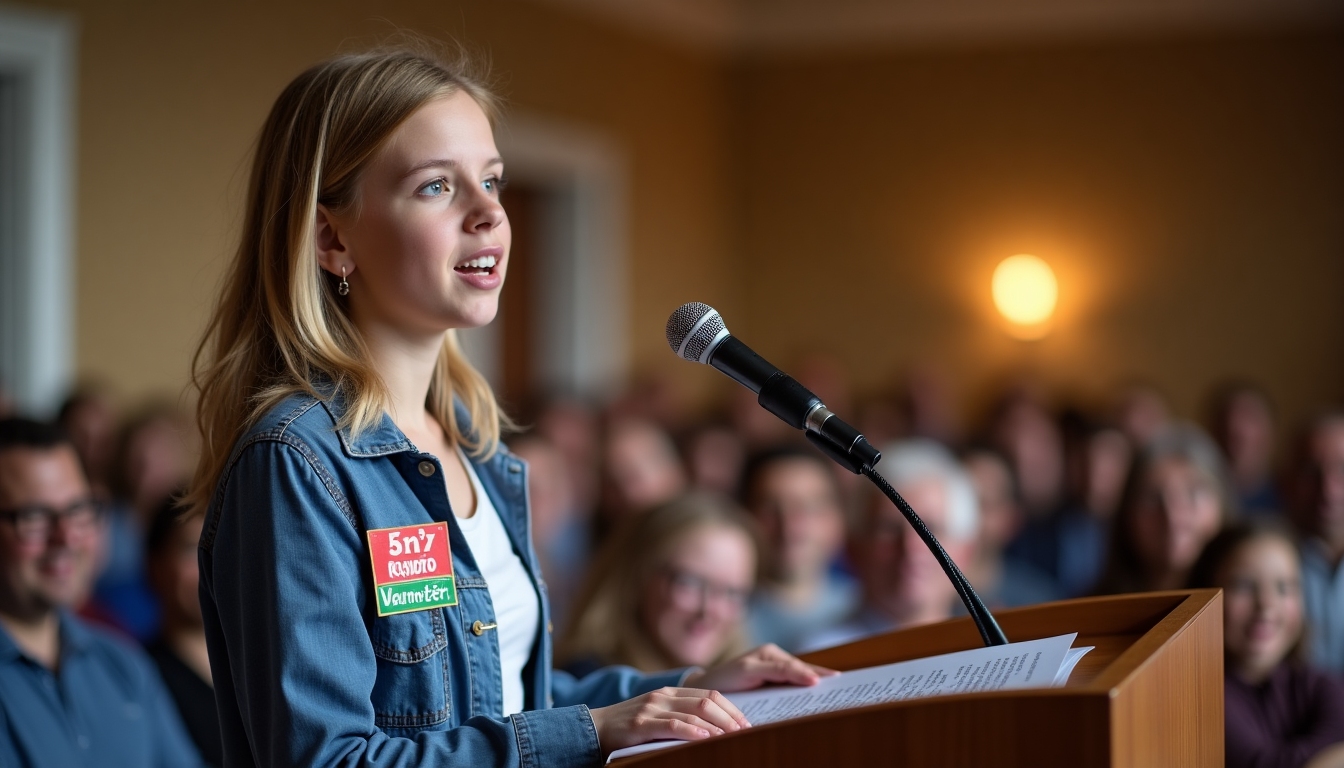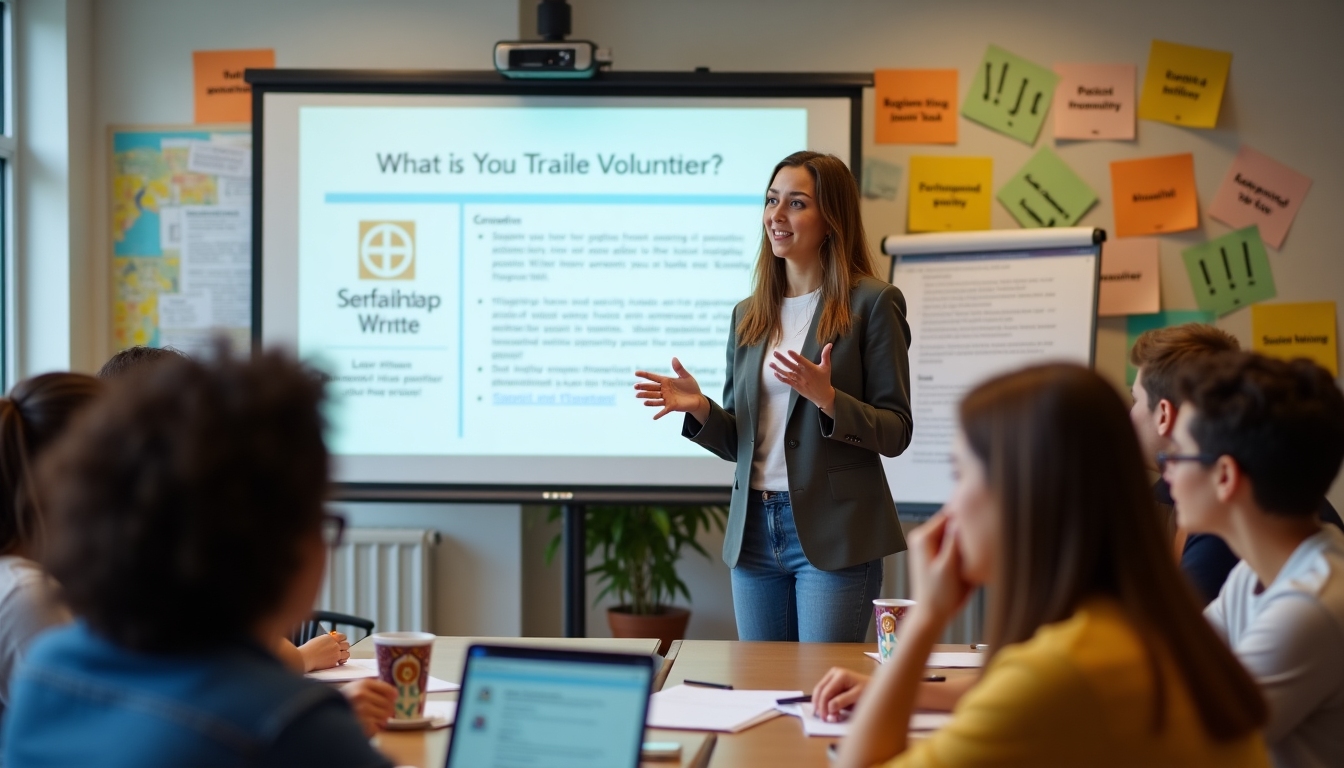How Volunteer Work Benefits Campaigns
By , May 4, 2025
Volunteer work is the backbone of successful political campaigns. It amplifies messages, mobilizes communities, and drives voter engagement. This article explores the multifaceted benefits of advocacy volunteering in political campaigns, offering insights into how volunteers shape electoral outcomes and foster democratic participation.
The Power of Grassroots Mobilization
Volunteers are the lifeblood of any political campaign. They are the ones who hit the streets, knock on doors, and make personal connections with voters. This grassroots mobilization is crucial for several reasons.
Firstly, volunteers can reach voters in a way that paid advertisements cannot. A personal conversation at the doorstep can sway undecided voters and energize the base. According to a study by the Pew Research Center, face-to-face interactions are one of the most effective ways to influence voter behavior (Pew Research Center).
Secondly, volunteers bring authenticity to the campaign. They are often local residents who can speak to the issues that matter most to their community. This local knowledge and passion can resonate deeply with voters.
For example, during the 2008 Obama campaign, volunteers played a pivotal role in the "ground game," which was credited with helping to secure victory. The campaign's volunteer efforts were so effective that they have since become a model for other campaigns (Harvard Kennedy School).
Volunteers engage in various activities such as phone banking, text banking, and hosting house parties. Each of these activities plays a unique role in voter outreach. Phone banking allows volunteers to have direct conversations with voters, addressing their concerns and providing information about the candidate's platform. Text banking, on the other hand, is a more modern approach that can reach a larger audience quickly, especially younger voters who prefer digital communication.
Additionally, hosting house parties can create a more intimate setting for discussions, allowing volunteers to build deeper connections with potential supporters.
By diversifying volunteer activities, campaigns can maximize their outreach and engage with voters in ways that resonate with them.

Building a Community of Advocates
Volunteer work in political campaigns does more than just help win elections; it builds a community of advocates who are invested in the democratic process. This sense of belonging and shared purpose can have lasting effects.
Volunteering creates networks of passionate individuals who often continue their advocacy beyond the campaign. For instance, many volunteers go on to lead community projects, start non-profits, or even run for office themselves.
Take the example of the "Sunrise Movement," a youth-led organization that started as a volunteer-driven campaign for climate action. Their efforts have led to significant policy changes and have inspired a new generation of activists (Sunrise Movement).
Moreover, volunteering fosters a sense of empowerment. When individuals see the impact of their efforts, they are more likely to stay engaged in civic activities. This ripple effect can strengthen democracy at the grassroots level.
The relationships formed during a campaign often persist long after the election is over. Volunteers who work together on a campaign may continue to collaborate on community projects or support each other's future endeavors. This ongoing engagement can lead to a more active and informed citizenry, which is essential for a healthy democracy.
Moreover, volunteer networks can serve as a talent pool for future campaigns or political initiatives. Campaigns that invest in building strong volunteer communities can benefit from a loyal and experienced base of supporters.

Enhancing Campaign Visibility and Reach
In today's digital age, volunteers play a crucial role in extending a campaign's visibility and reach. Through social media, local events, and word-of-mouth, volunteers can amplify the campaign's message far beyond traditional media channels.
For example, volunteers can organize and promote rallies, town halls, and fundraising events, which are essential for building momentum and engaging with the community. Additionally, digital volunteering, such as managing social media accounts or creating online content, has become increasingly important.
A notable case is the 2016 Bernie Sanders campaign, which leveraged a vast network of digital volunteers to create viral content and mobilize support online (The Guardian).
Furthermore, volunteers can help in translating campaign materials, ensuring that the message reaches diverse communities. This inclusivity can broaden the campaign's appeal and foster a more representative democratic process.
Digital volunteering has become increasingly important in the age of social media. Volunteers can create and share content, manage online communities, and even develop apps or tools to support the campaign. This not only extends the campaign's reach but also allows for real-time engagement with supporters.
Furthermore, digital volunteering can be more accessible for individuals who may not be able to participate in traditional volunteer activities due to time or mobility constraints. This inclusivity can broaden the campaign's volunteer base and bring in diverse perspectives.

Developing Leadership and Skills
Volunteer work in political campaigns is a breeding ground for future leaders. It provides opportunities for skill development that can be invaluable in various career paths.
Volunteers often take on roles that require public speaking, organizing, strategic planning, and teamwork. These experiences can build confidence and competence, preparing individuals for leadership positions.
Many prominent political figures started their careers as volunteers. For instance, former President Barack Obama began his political journey as a community organizer, a role that involved extensive volunteer coordination (Biography.com).
Additionally, volunteering can open doors to professional networks and mentorship opportunities. Campaigns often attract seasoned professionals who can provide guidance and support to aspiring leaders.
Volunteers often develop skills in data analysis, as they may be involved in tracking voter demographics or analyzing campaign metrics. They may also gain experience in event planning, logistics, and crisis management, all of which are valuable in various professional contexts.
Additionally, volunteering can enhance soft skills such as communication, teamwork, and problem-solving. These skills are transferable to many careers and can give volunteers a competitive edge in the job market.

The Economic Impact of Volunteer Work
Volunteer work provides significant economic benefits to political campaigns. By contributing their time and skills, volunteers save campaigns substantial resources that can be allocated to other critical areas, such as advertising or research.
According to the Independent Sector, the estimated value of a volunteer hour in the United States is $28.54 (Independent Sector). For a campaign with hundreds of volunteers, this can translate to millions of dollars in saved costs.
Moreover, volunteers can help in fundraising efforts, organizing events, and soliciting donations, further enhancing the campaign's financial health.
However, it's important to note that while volunteers provide economic benefits, campaigns must also invest in volunteer management to ensure effectiveness. This includes training, coordination, and recognition programs.
Beyond the direct cost savings, volunteer work can stimulate local economies. Campaigns often rely on local businesses for supplies, catering, or venue rentals for events. This can provide a boost to small businesses and create job opportunities.
Moreover, successful campaigns can lead to policy changes that have broader economic implications, such as infrastructure investments or tax reforms, which can further benefit the community.

Challenges and Solutions in Volunteer Management
While volunteer work is invaluable, managing volunteers effectively can be challenging. Common issues include volunteer retention, training, and coordination.
To address these challenges, campaigns should implement best practices such as:
- Clear Communication: Ensure that volunteers understand their roles and responsibilities.
- Recognition: Acknowledge and appreciate volunteers' contributions regularly.
- Flexible Opportunities: Offer a variety of tasks and time commitments to accommodate different schedules.
- Training Programs: Provide comprehensive training to equip volunteers with the necessary skills and knowledge.
Experienced campaign managers emphasize the importance of building a positive volunteer culture. For example, the Obama campaign's "Respect, Empower, Include" mantra was instrumental in fostering a supportive environment for volunteers (Obama for America).
To improve volunteer retention, campaigns can implement mentorship programs where experienced volunteers guide newcomers. This not only helps new volunteers feel supported but also fosters a sense of camaraderie.
Additionally, using technology such as volunteer management software can streamline scheduling, communication, and task assignment, making the volunteer experience more efficient and enjoyable.
By addressing these challenges with innovative solutions, campaigns can create a more positive and productive volunteer environment.

In conclusion, volunteer work is a cornerstone of successful political campaigns. It empowers individuals, builds communities, and drives democratic engagement. By understanding and leveraging the power of advocacy volunteering, campaigns can achieve greater impact and foster a more vibrant democracy.